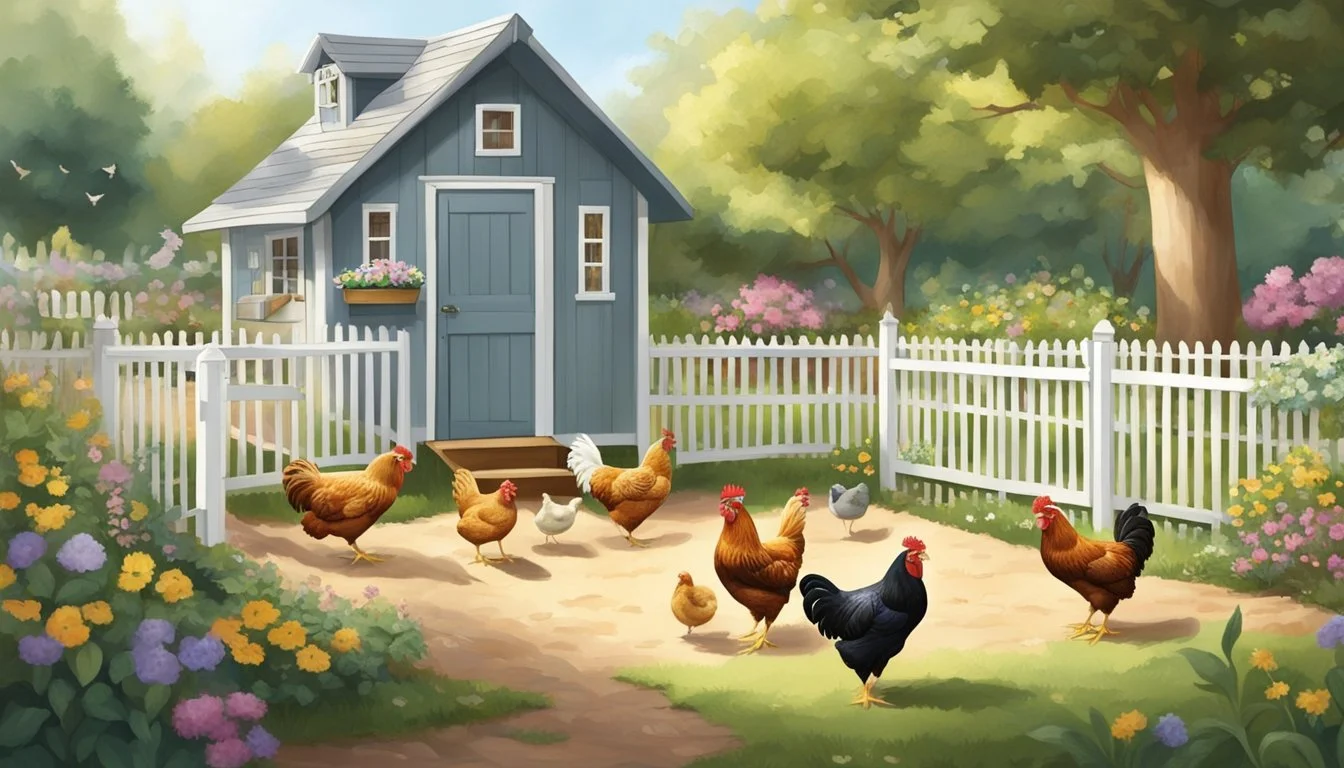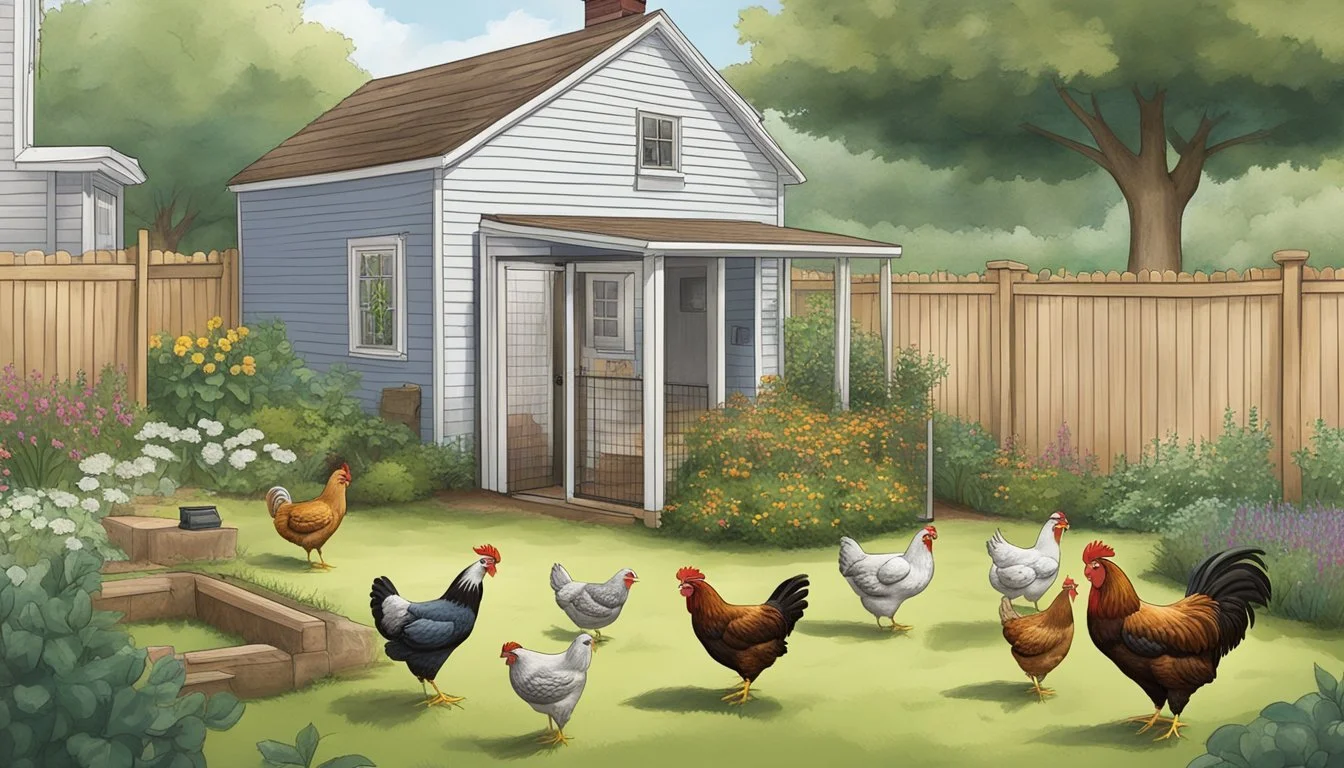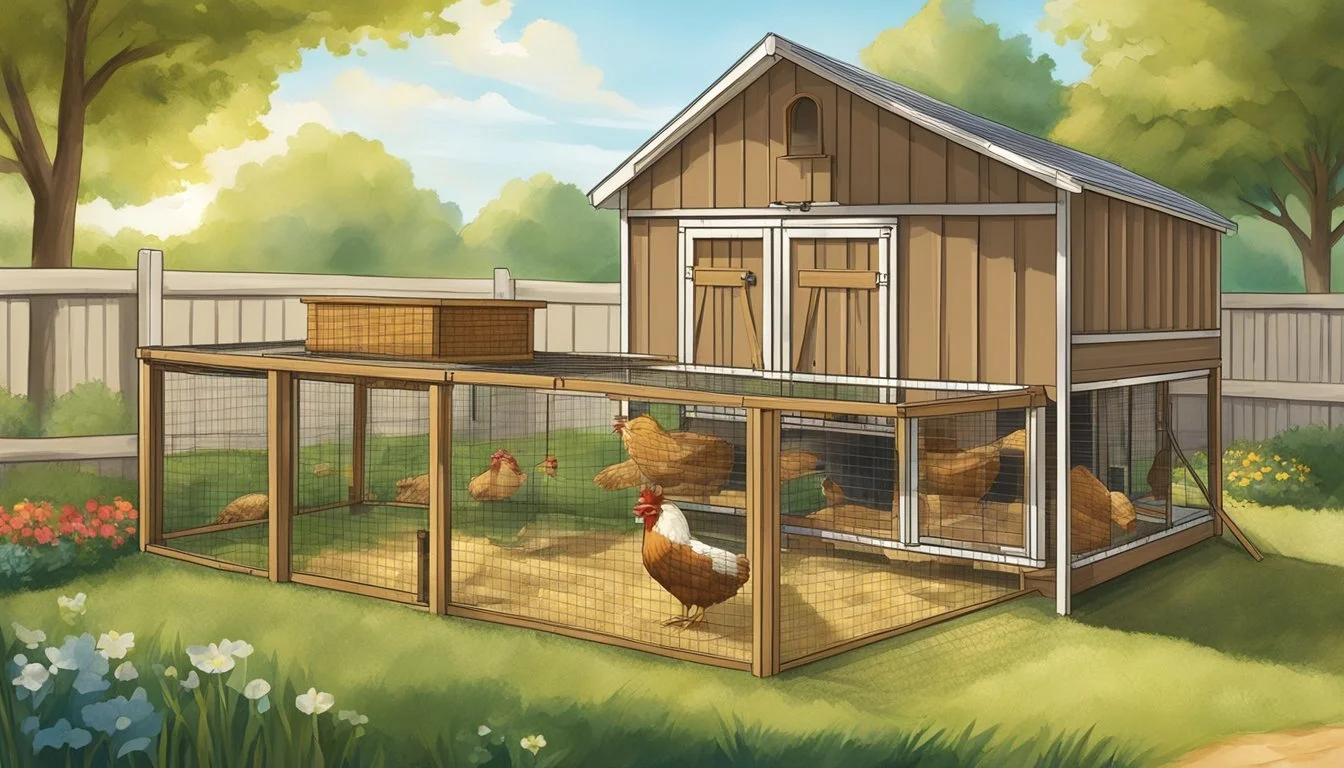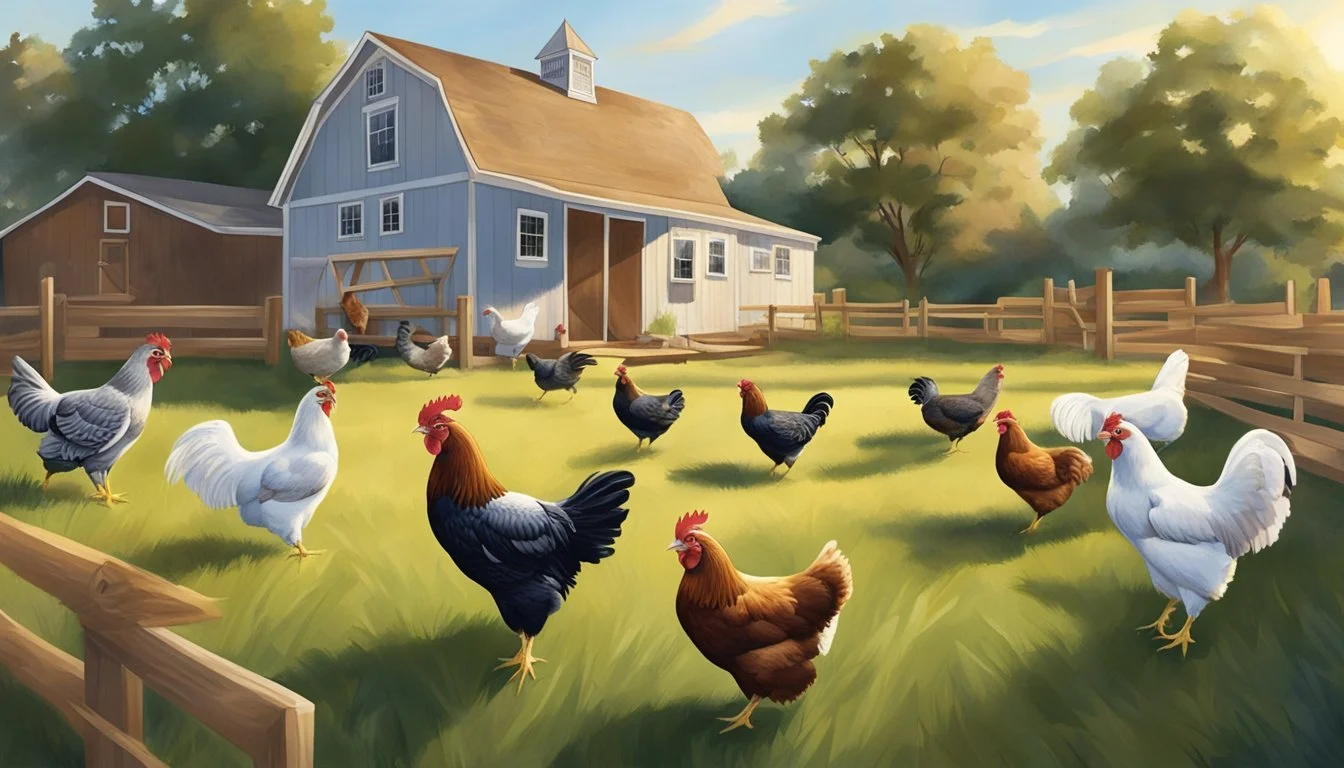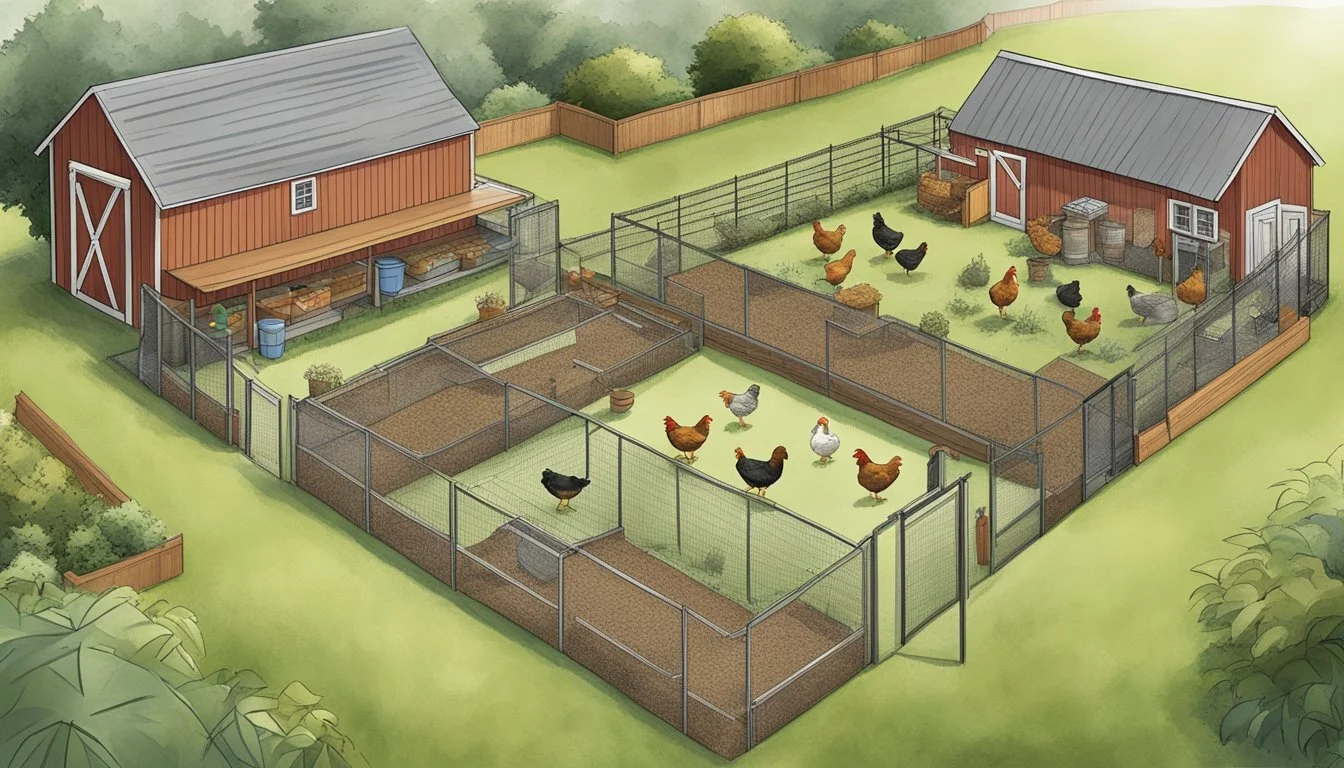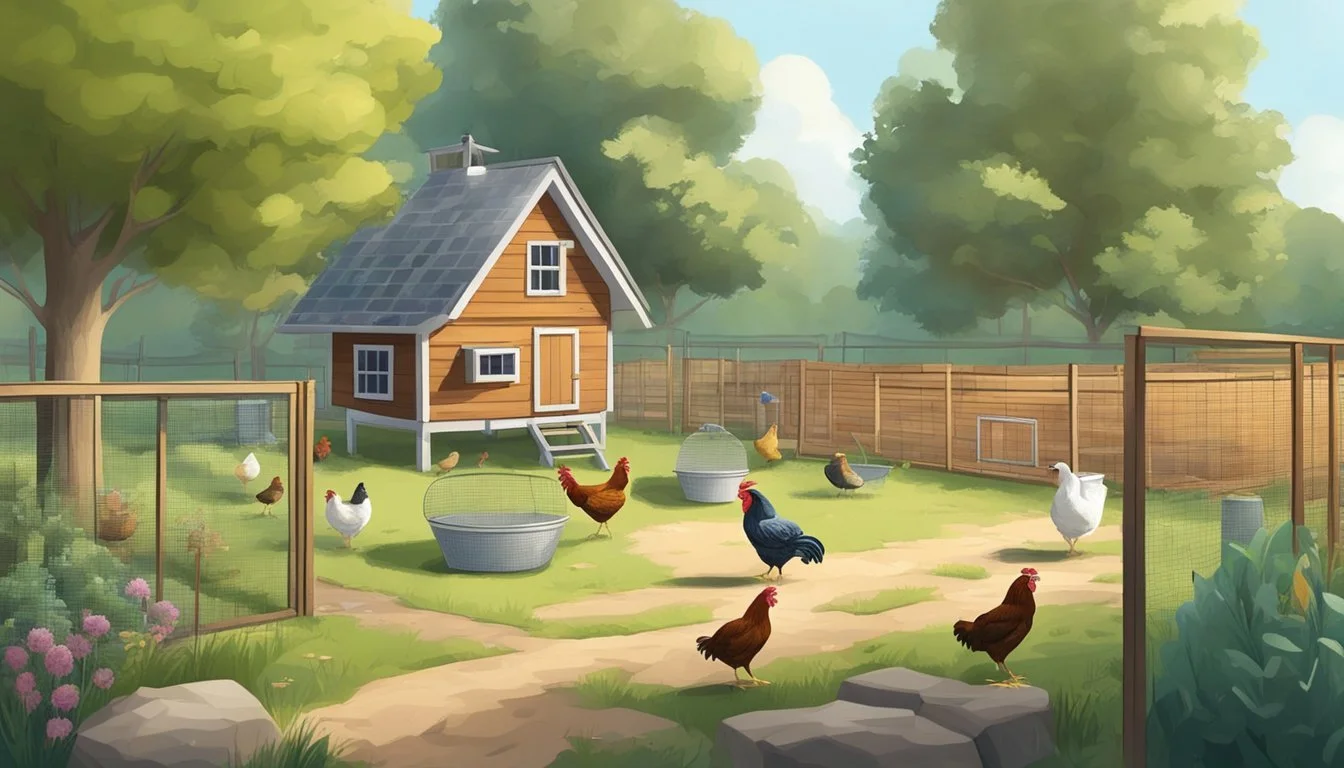Raising Backyard Chickens in Dover, DE
A Comprehensive Guide for Beginners
Raising backyard chickens has become an increasingly popular endeavor for many residents in Dover, Delaware, who seek the rewards of fresh eggs, natural pest control, and the joys of animal husbandry. The City of Dover allows individuals to keep chickens under specific guidelines designed to balance urban livestock management with neighborhood harmony. Homeowners are granted the ability to maintain up to 25 chickens on their property, ensuring that fresh eggs are an accessible resource for many households. However, roosters are not permitted within city limits to prevent noise disturbances that might affect the community.
To comply with local ordinances, chicken coops must be positioned within the rear yard and are subject to property line restrictions. This placement helps maintain aesthetic standards and minimizes interactions that could lead to complaints from neighbors. Chicken owners are also reminded of the noise ordinances that apply to all animals, not just roosters, ensuring that the peace of the neighborhood is preserved.
The city's regulations reflect a commitment to supporting urban agriculture while instituting necessary safeguards for the community's well-being. These measures not only promote responsible chicken raising practices but also facilitate a harmonious coexistence between chicken enthusiasts and their neighbors. As such, would-be poultry keepers in Dover are encouraged to familiarize themselves with the full spectrum of local requirements before building their coop and bringing home their new feathered friends.
Understanding Local Chicken Ordinances in Dover
Residents interested in raising backyard chickens in Dover should be familiar with the specific local ordinances that govern such practices to ensure full legal compliance.
Delaware Chicken Regulations Overview
In Dover, Delaware, local ordinances dictate the parameters for raising backyard chickens. These regulations are enforced to maintain public health and community standards.
Chickens Allowed: Homeowners may keep up to a certain number of chickens, with the cap often determined by the size of their property.
Roosters: Generally, roosters are prohibited to prevent noise disturbances.
Permit Requirements for Raising Chickens
Local laws may mandate a permit for residents to legally raise chickens in their backyard.
Application Process: Individuals typically need to apply through the local city clerk's office or relevant municipal department.
Inspections: Some jurisdictions may require a site inspection to ensure coop structures meet specific requirements.
Noise and Odor Ordinances
Adherence to noise and odor control ordinances is a key aspect of maintaining backyard chickens in Dover.
Noise Ordinance: These regulations are in place to minimize disturbances to neighboring properties, particularly through the prohibition of roosters.
Odor Control: Owners must manage their chickens to prevent odor nuisances, which can affect the quality of life in the surrounding area.
Setting Up Your Chicken Coop
Establishing a chicken coop in the backyard is a process that requires careful planning and attention to detail. The coop must provide shelter, security, and a clean environment for the chickens to thrive.
Choosing the Right Chicken Coop Design
When selecting the design for a chicken coop, one must consider both space and the local climate of Dover, DE. A coop should provide at least 2-3 square feet of space inside for each chicken and an additional 8-10 square feet outside for roaming. The coop needs to offer sufficient ventilation to ensure fresh air circulates without creating drafts in colder weather.
Essential Features for a Secure Coop
To protect the flock from predators, a secure coop is imperative. Doors and windows must shut tightly, and using automatic door openers can enhance security by ensuring the coop is closed at night. A sturdy fence surrounding the coop should be buried at least 12 inches into the ground to deter digging animals. The coop itself should be constructed with robust materials and include screens or wire mesh over openings to keep smaller predators out.
Maintaining Proper Hygiene
A chicken coop requires regular cleaning to maintain the health of the chickens and prevent disease. Implementing removable trays or flooring that can be easily accessed for cleaning will help maintain proper hygiene. Ensuring ample ventilation is crucial to reduce moisture and ammonia levels, which can contribute to respiratory issues in chickens.
The setup of the chicken coop in Dover, DE, must accommodate the specific needs of chicken care, prioritizing the well-being and safety of the animals throughout each detail of its design and maintenance.
Selecting Your Backyard Chicken Breed
When starting a flock of backyard chickens in Dover, DE, it's important to choose breeds that align with your goals, whether they concern temperament, egg production, or aesthetics.
Characteristics of Common Backyard Chicken Breeds
Several chicken breeds are well-suited for backyard flocks due to their ability to adapt to the climate in Dover and their recognized status by the American Poultry Association. For instance, Brahmas are a favorite among beginners for their striking appearance and substantial size. This breed tends to be hearty, with roosters weighing up to 12 pounds and hens around 10 pounds.
Another prolific layer is the Leghorn, which can provide a steady supply of eggs and adapts well to varied environments. Here are some characteristics of common breeds:
Sussex: Known for their friendly nature, Sussex chickens are also good layers.
Rhode Island Red: They are robust and often lay a large number of brown eggs.
It's crucial to research each breed's care requirements, space needs, and climate suitability.
Temperament and Egg-Laying Capabilities
The temperament of chicken breeds and their egg-laying capabilities are central to a harmonious and productive backyard flock. For instance, the Brahma breed is known for its gentle temperament, making them a peaceful addition. Understanding the temperament is crucial to maintaining flock dynamics, especially in a backyard setting.
When considering egg production, different breeds have different capacities and egg color:
Breed Temperament Egg Production (per year) Egg Color Brahma Gentle Moderate Brown Leghorn Energetic High White Sussex Friendly Good Light Brown Rhode Island Red Hardy and Active High Brown
One should weigh the importance of a calm flock against the desire for egg quantity to make a well-informed decision about which breeds to raise.
Chicken Care and Management
When raising backyard chickens in Dover, Delaware, understanding the intricacies of chicken care is essential. From a nutritious diet to behavioral insights, each aspect contributes to a thriving flock.
Feeding Your Chickens Nutritious Feed
Providing a balanced diet is crucial for the chickens' health and egg production. Feed should be rich in protein, vitamins, and minerals. A typical feed consists of:
Layers pellets: for hens, containing the necessary calcium for shell formation.
Grit: for digestion, helping chickens break down food.
Scratch grains: as a treat and for foraging behavior.
Water availability is equally important, with clean water containers being a must at all times.
Health Checks and Preventive Measures
Routine health check-ups are key to preventing diseases within the flock. Owners should look for signs such as:
Lethargy, loss of appetite, or abnormal droppings: potential illness indicators.
Physical checks: including inspecting feathers and skin for parasites.
Vaccinations and biosecurity measures, like cleanliness and quarantine for new birds, also play a significant role in disease prevention.
Understanding Chicken Behavior and Social Structure
Recognizing social hierarchy is vital for flock management. Hens and roosters establish a 'pecking order', which maintains social structure within the flock. Observing interactions can alert keepers to bullying, which can lead to injuries if not managed. Roosters can be protective of hens but may also be aggressive, leading to Dover's restrictions on keeping roosters to prevent noise disturbances.
Mating, Brooding, and Chick Rearing
Breeding and chick rearing require careful planning. Hens can become broody, indicating their readiness to hatch eggs. Key points include:
Nesting boxes: private and clean, providing comfort for laying and potential brooding.
Egg incubation: either naturally by a broody hen or artificially with an incubator.
After hatching, chicks require a heat source, starter feed, and constant monitoring as they develop into fully-fledged members of the flock.
Legal and Ethical Considerations
When diving into the world of raising backyard chickens in Dover, Delaware, it's crucial for the owner to be well-informed about the legal framework established by the state and local governance, as well as the role of the Department of Agriculture. Additionally, one must understand the regulations governing the sale of fresh eggs and poultry products.
The Role of the Department of Agriculture
The Delaware Department of Agriculture is tasked with overseeing various aspects of animal husbandry in the state. This department provides guidelines on the humane treatment of farm animals, including backyard chickens. The Delaware Livestock Welfare Law ensures that owners maintain proper housing, ventilation, feed, and water for their chickens. They also collaborate with local authorities in Dover to establish property line restrictions, coop specifications, and limitations on the number of chickens that can be kept.
Regulations on Selling Eggs and Poultry Products
Individuals raising chickens for egg production must adhere to specific regulations if they intend to sell fresh eggs or other poultry products. Delaware's regulations require that:
Eggs be candled and graded according to size and quality.
All eggs intended for sale must be properly labeled with the producer's information and the date of packaging.
Those selling eggs must ensure the refrigeration of eggs in compliance with food safety standards.
Sellers must also be aware of licensing requirements if they cross a certain threshold of sales which may subject them to state inspections to guarantee that food safety protocols are closely followed.
Challenges and Solutions in Backyard Chicken Raising
Raising backyard chickens in Dover, DE, comes with its unique set of challenges. Addressing health concerns, protecting the flock from predators, and managing noise to maintain neighborly relations are paramount.
Addressing Common Diseases and Health Issues
Chickens are susceptible to several diseases, which can rapidly spread through a small flock. It's essential to monitor for signs of illness such as lethargy, respiratory issues, and changes in eating habits. For prevention, maintain clean coops, provide vaccinations, and quarantine new or sick birds. Regular check-ups from a veterinarian who specializes in poultry can be invaluable in keeping a backyard flock healthy.
Protecting Your Flock from Local Predators
In Dover, common predators such as foxes, raccoons, and hawks pose risks to backyard chickens. Ensuring the coop and run are secure with fencing, preferably buried underground to prevent digging, is crucial. Adding roof netting can safeguard against aerial threats. Owners should consider secure locking mechanisms to defend against clever predators like raccoons. Dogs and other domestic animals should be trained to coexist peacefully with the chickens or kept at a safe distance.
Dealing with Neighbors and Noise Complaints
Noise disturbances, primarily from roosters, can lead to complaints from neighbors. Selecting quieter chicken breeds, constructing sound-proofed or buffered coops can mitigate noise levels. Open communication with neighbors and setting clear expectations can also reduce conflicts. It's important to check local ordinances regarding the keeping of poultry to ensure compliance and prevent legal issues.
Additional Resources for Backyard Chicken Owners
For individuals in Dover, Delaware, looking to maintain backyard chickens within the bounds of local ordinances, the city offers a variety of resources to ensure proper care and compliance. By connecting with local poultry clubs and attending educational workshops, they can access comprehensive support and guidance.
Local Poultry Clubs and Associations
Local poultry clubs and associations provide a wealth of knowledge to backyard chicken owners. By joining such clubs, members benefit from shared experiences, tips on best practices for chicken care, coop construction, and aligning with Dover's chicken ordinance. They also help owners prevent common mistakes and source local suppliers for chicken feeders and other essentials. One example of a resource is the Delaware Poultry Club, which caters to enthusiasts across the state.
Educational Workshops and Farming Expos
Throughout the year, educational workshops and farming expos take place, offering sessions dedicated to raising chickens as pets and for individual domestic purposes. These events often feature:
Expert talks on the do's and don’ts in the world of backyard poultry
Demonstrations on building compliant coops and setting up chicken feeders
Workshops on nutrition and healthcare for chickens
These educational resources ensure that backyard chicken owners abide by Dover's animal noise ordinances and property line restrictions while providing optimal care for their pets.

